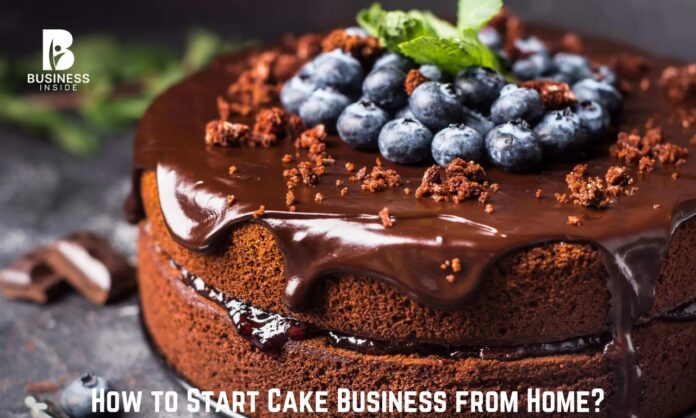Starting a cake business from home can be a rewarding venture for baking enthusiasts. With the rising popularity of custom-made cakes for events like birthdays, weddings, and other celebrations, there’s a growing demand for home-based bakers. This guide covers all you need to know to get your cake business off the ground, from legalities to marketing strategies.
1. Research and Develop a Business Plan
Before starting your baking journey, it’s essential to develop a solid business plan. This plan will serve as your roadmap, detailing the services you’ll offer, your target market, pricing structure, and financial projections.
- Determine Your Niche: Decide whether you want to specialize in wedding cakes, birthday cakes, cupcakes, or custom cakes. You can also focus on dietary specialities like vegan or gluten-free cakes.
- Identify Your Target Audience: Understanding your customers is vital. Are you catering to parents for children’s birthday cakes or couples for weddings?
- Budget Planning: Determine the cost of raw materials, packaging, and delivery services. You should also plan for unexpected expenses like equipment repairs or ingredient price hikes.
2. Fulfill Legal Requirements
Running a cake business from home requires adhering to local health and business laws. Make certain that your business follows these guidelines:
- Licensing and Permits: Depending on your location, you may need a home occupation permit or a cottage food license.
- Food Safety Certification: Obtain a food handler’s certification to ensure you understand proper food safety protocols.
- Business Registration: Register your cake business as a sole proprietorship, LLC, or another legal structure depending on the liability coverage you need. You might also require an EIN (Employer Identification Number) for tax-related matters.
3. Set Up Your Home Kitchen for a Cake Business
Running a cake business from home requires more than just a love for baking—it also means your kitchen must meet certain standards.
- Separate Cooking Space: Some local laws may require a separate kitchen space for food production if you are selling to the public. Make sure to invest in high-quality baking tools and ovens to increase production efficiency.
- Invest in Equipment: To make large batches of cakes, you’ll need commercial-grade mixers, ovens, and decorating tools. Consider investing in storage containers and refrigeration to keep your cakes fresh.
4. Develop a Pricing Strategy
Pricing can make or break your business, so ensure you set competitive yet profitable rates.
- Cost Calculation: Factor in the cost of ingredients, labor, and utilities. Don’t forget packaging, delivery, and the time spent marketing or talking to customers.
- Competitive Research: Look at what other home-based cake businesses are charging for similar products. Consider implementing tiered pricing based on the cake’s complexity, size, and degree of customization.
- Discounts and Offers: To attract new customers, you may want to offer introductory discounts or create bundles for events like weddings, where multiple cakes or desserts may be needed.
5. Market Your Cake Business
With the competition in the baking industry, having a solid marketing strategy is essential to your success.
- Create a Website: Having a professional website with an online ordering system makes it easier for customers to find and purchase from you.
- Leverage Social Media: Platforms like Instagram and Pinterest are visual-heavy and perfect for showcasing your cake creations. Regularly post pictures of your cakes, customer testimonials, and even behind-the-scenes content.
- Local Advertising: Consider reaching out to event planners, wedding venues, and local businesses to form partnerships. You can also attend local fairs or markets to promote your cake business.
- Word-of-Mouth: The best way to grow a home-based cake business is through referrals. Make sure every customer is satisfied with your service, as happy clients will recommend you to others.
6. Packaging and Delivery
Packaging plays a vital role in maintaining the quality of your cakes during delivery. It should be sturdy enough to protect your creations while still looking professional.
- Invest in High-Quality Packaging: Boxes that securely hold cakes in place during transportation are essential. Consider branded packaging with your logo for a professional touch.
- Offer Delivery Services: Consider delivering your cakes personally or using a reliable courier service, especially for large or delicate orders like wedding cakes. Ensure you have temperature-controlled storage for longer deliveries.
7. Managing Customer Expectations
Effective communication is essential for managing customer expectations, particularly with custom cakes.
- Detailed Consultations: When taking orders, provide detailed consultations either in person or via video calls. Clarify design, flavors, and delivery dates. This will prevent any misunderstandings and ensure customer satisfaction.
- Deposit System:
- For large cake orders, like weddings, require a deposit to secure the order. This helps avoid last-minute cancellations and covers your expenses in case the order is canceled.
- Custom Cake Policies: Make sure to have a clear policy on last-minute changes, rush orders, and refunds. Include these policies on your website and confirm them in writing when customers place an order.
8. Frequently Asked Questions
Q1: How do I price my cakes?
Answer: To price your cakes effectively, calculate the cost of ingredients, labor, and utilities. Add a markup to ensure profitability while staying competitive. Research your local market to get a sense of average pricing.
Q2: Do I need insurance for my home-based cake business?
Answer: Yes, it’s highly recommended. Consider liability insurance to cover accidents like foodborne illness claims or delivery mishaps. Check with an insurance provider to determine what kind of coverage you need.
Q3: How do I handle large orders?
Answer: For large orders, ensure you have enough ingredients and kitchen capacity. If necessary, hire additional help or extend your production hours to meet the deadline.
Q4: Can I sell cakes online?
Answer: Yes, many home-based bakers sell their cakes through their websites or social media platforms. Maintaining an online presence helps you connect with a larger audience.
Q5: How can I attract more customers?
Answer: Use a mix of digital marketing strategies, such as maintaining an active social media presence, SEO for your website, and offering referral discounts. You can also partner with local event organizers and businesses.
Conclusion
Launching a cake business from home is a fantastic way to transform your baking passion into a profitable enterprise. By following the right steps—from developing a business plan to marketing your creations—you can build a loyal customer base and grow your business over time. With dedication and creativity, your home kitchen can become the go-to place for delicious, custom cakes in your community.

